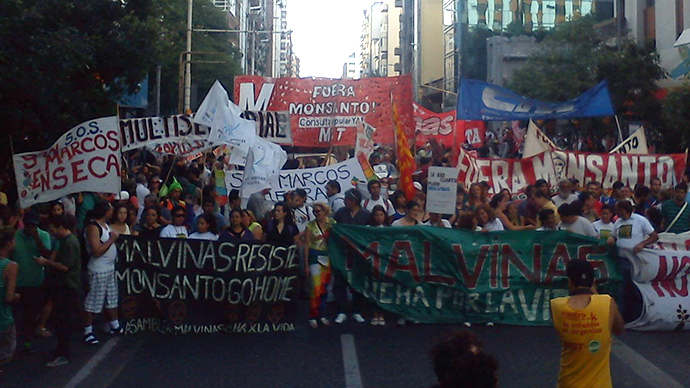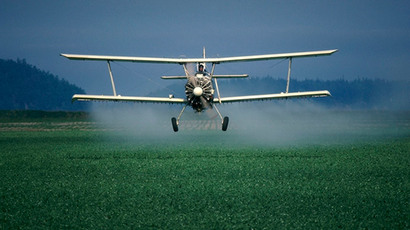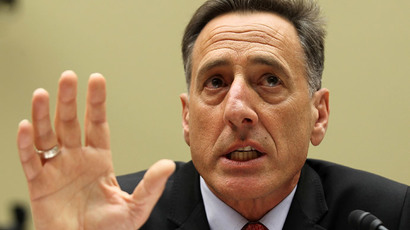Argentina environmentalists, farm workers protest Monsanto pesticides

Agriculture workers and various environmental advocacy groups in Argentina are protesting the use of pesticides produced by biotech giant Monsanto as they seek to halt work on the company’s new chemical plant in Malvinas Argentina.
Residents, along with workers who regularly come into contact with Monsanto's products, are calling for the suspension of the use of the company's pesticides, claiming they cause adverse health effects. The protest comes amid mounting scientific evidence that the liberal and often unregulated use of Monsanto’s chemicals are linked to growing instances of various cancers and birth defects.
The collection of groups protesting construction of the new plant in Argentina’s province of Cordoba have halted progress for months now, while they seek a permanent injunction based on health and environmental concerns.
“Here we have the aberration that on one side of the fence is the fumigation (use of pesticides) and on the other side of the fence is the town, or the local school, which is subjected to aerial spraying. Teachers have to come outside and shelter their students indoors because these toxic chemicals are raining down,” said Antonio Riestra, a member of the Unidad Popular party, which has joined the cause.
Beyond halting work on the new plant, activists hope to gain support from the local and national government to eject Monsanto out of Argentina. That goal seems remote, though, considering the proliferation of Monsanto pesticides along with the company’s genetically modified crops.
Within the last few decades, Argentina has transformed itself into the world’s third-largest soy producer, almost all of which is genetically-modified seed. The crop is now the country’s most important export.
Along with the growth of soy crops has come the liberal use of pesticides – the most pervasive of which is Monsanto’s glyphosate, which singles out invasive weeds when applied to the crops. The use of glyphosate – more commonly known as RoundUp – has surged, evidently as a result of weeds' increasing resistance to the herbicide.
Though Monsanto maintains that glyphosate has not been conclusively linked to cancers or prenatal malformations, use of the biotech company’s products in Argentina often goes beyond the suggested guidelines.
A recent investigative report by the Associated Press found that use of the pesticide was, at best, lightly regulated.
"With soybeans selling for about US$500 a ton, growers plant wherever they can, often disregarding Monsanto's guidelines and provincial law by spraying with no advance warning, and even in windy conditions," AP reported.
Guidelines preventing the spraying of the pesticide close to residential areas are often disregarded. One study cited by AP found trace amounts of the pesticide in 80 percent of local children.













